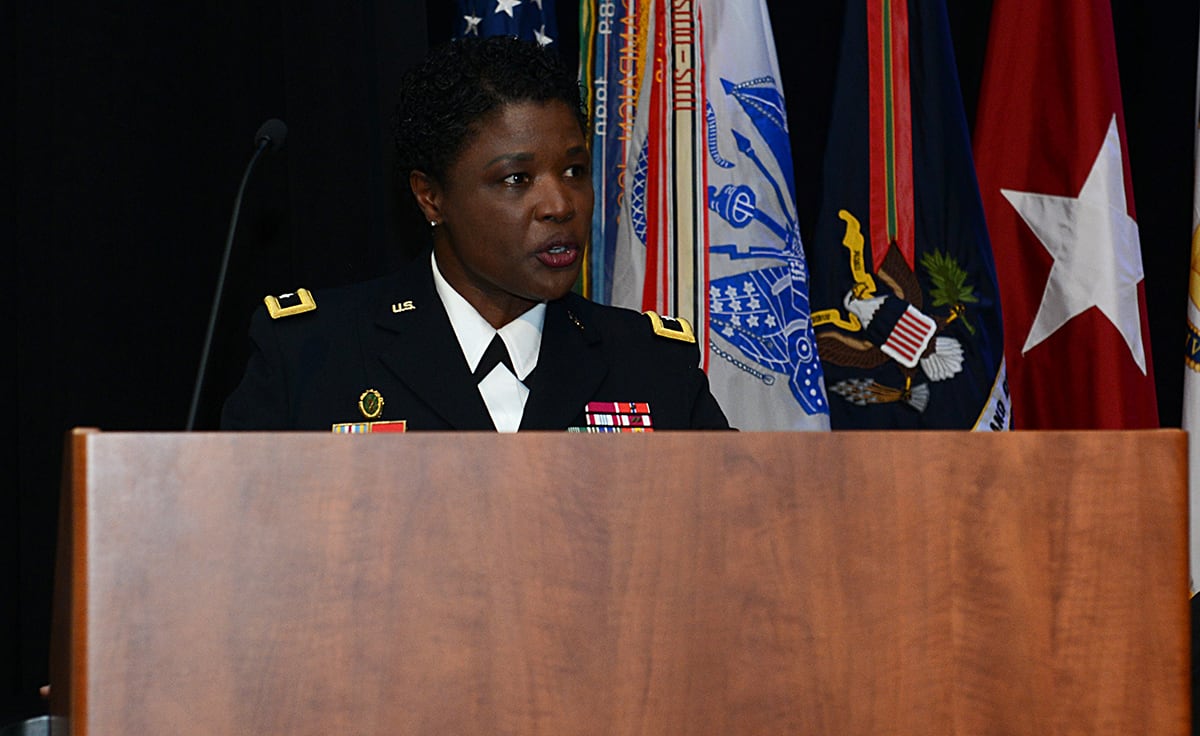The Army’s home for intelligence and cyber operations will welcome its first female garrison commander in a change-of-command ceremony next week.
Col. Yolanda Gore will be the 89th garrison commander of Fort Meade, Maryland, when she takes command from Col. Michael Sapp on Aug. 6.
Gore recently served as the former strategic initiative chief for the Army’s deputy chief of staff over personnel at the Pentagon.
RELATED

“I’m excited about the prospect of meeting new people and taking on the challenges this role will bring. It’s an exciting feeling to envision what lies ahead,” Gore said in an Army release.
In an interview with Army Public Affairs in early July, Gore noted her experience working closely with the office of the Secretary of the Army and was deeply involved in Medals of Honor ceremonies.
“Dealing with personnel matters has been central to my career so far,” she said. “Now, as a Garrison Commander, I’ll be immersed in the operational aspects of running an installation.”
Fort Meade is the Army’s second-largest installation by population. It contains more than 120 organizations, including U.S. Cyber Command, the National Security Agency, the Defense Information Systems Agency, Defense Media Activity, Architect of the Capitol and the Environmental Protection Agency, according to the release.
RELATED

Fort Meade, which also houses various Air Force, Marine Corps and Navy units, is the largest employer in Maryland, according to the service.
Located approximately 30 miles north of the Pentagon, Fort Meade is a 107-year-old Army installation named for Union Gen. George S. Meade, who served as commander of the Army of the Potomac, according to the installation’s website.
Originally called Camp Annapolis Junction, the fort opened in 1917 and served as an Army training camp. It later served as both a recruit training post and a prisoner of war camp during World War II.
Beginning in the 1950s, the installation housed a series of radar and air defense systems during the Cold War with the Soviet Union.
Its current mission, housing much of the nation’s intelligence assets, began in the 1970s.
Todd South has written about crime, courts, government and the military for multiple publications since 2004 and was named a 2014 Pulitzer finalist for a co-written project on witness intimidation. Todd is a Marine veteran of the Iraq War.




